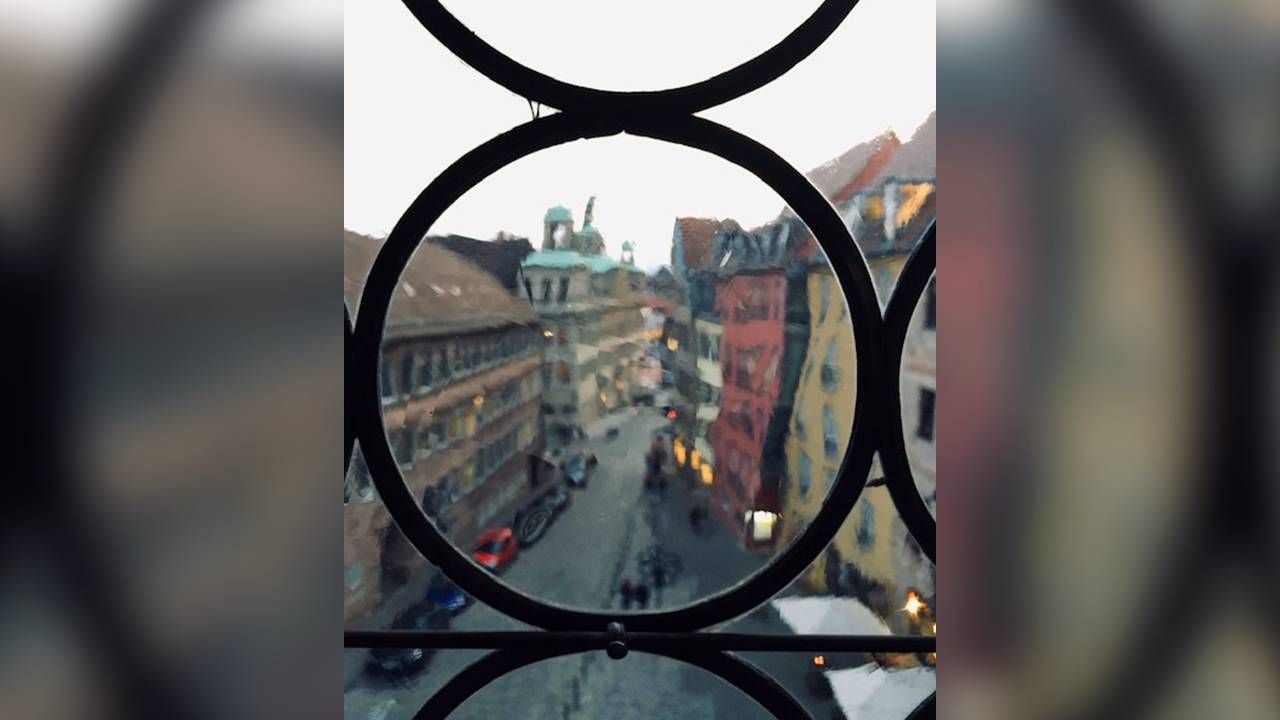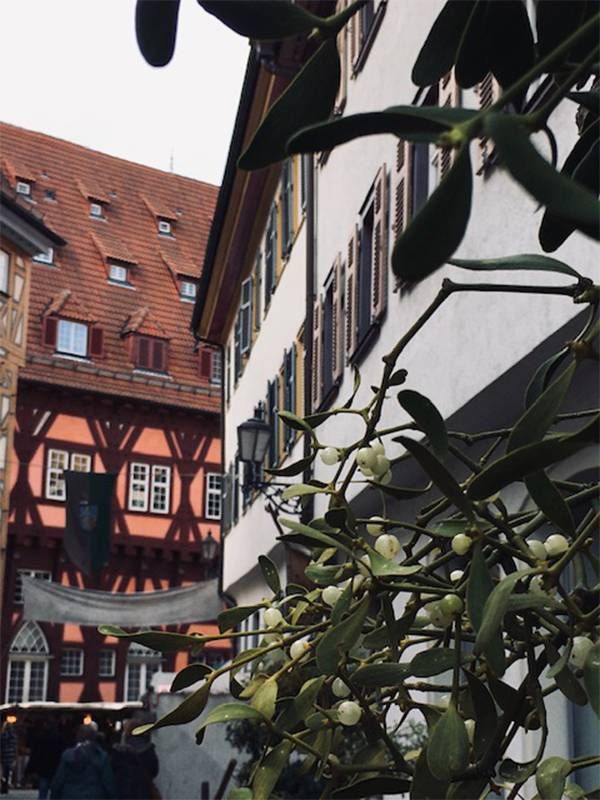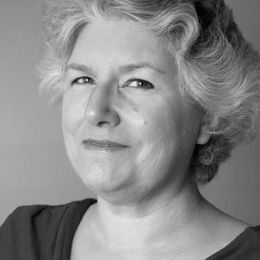Travels with My Seeing Eye Husband
The appearance of a cataract led me to experience our trip to Germany in unexpected ways
If you can read this, you're doing better than I was in December of 2019. Just in time for a long-planned trip to the Christmas markets of Germany, my right eye failed me.
Again.
Like many Americans whose eyes don't age well, I was dealing with synchronized operations to repair damage done by a retina that had decided to peel out of place, potentially taking my sight with it. I was determined to carry on with our travel plans and ended up learning a new way to see the world.

After discovering in June 2019 that I had blank spots, in July I embarked on a series of operations that would repair my eye and restore my vision (if all went well). After the vitrectomy, I would have to lie low for a month, and after another month, could likely go back to normal life, including flying.
It's almost guaranteed for people over age 40 who go through this procedure to develop a cataract.
But after the scariest part — patching my retina back onto the inside of my eye, like a bit of rubber stuck to an old bicycle tire — I could expect, my doctors said, for a cataract to develop, sooner or later. It might arrive, with its gray cinders, to fog my vision in a matter of months. Or years. Or maybe, not at all.
That's the typical process, said Dr. Jonathan Russell, assistant professor of ophthalmology and visual sciences at the University of Iowa in Iowa City. About half of his practice is repairing retinas (though not mine).
The Inevitable Cataract
I did the right thing by dropping everything in July to have the surgery. "This is a serious, serious problem and you need to not worry about your job, your kids, your activities … everything is secondary until you get this fixed. If you don't, you'll go blind," he told me.
It's almost guaranteed for people over age 40 who go through this procedure to develop a cataract, too, just as I did, confirmed Russell. The cycle of losing sight due to the retinal detachment, then gaining it through surgery, only to see it fade again with the inevitable cataract, makes it hard for patients to know how they should adjust accordingly.
But I didn't want to adjust, if it meant canceling our trip. I was lucky that I was well past the worst of it — repairing the detachment — and that I was cleared to fly. I figured I'd take my chances that the cataract would tarry long enough for my husband, Mark, and me to have our trip before the window of my vision started to slide shut again.
But of course, right after Halloween, a patchy mist started to creep around the perimeter of my vision.
Each day in November my anticipation grew as my sight eroded. As Russell affirmed, it wasn't dangerous. I still had one good eye. I could adjust.
But I wanted to see it all. Ours was a holiday itinerary, but I would have felt the same no matter when or where we were headed. Our must-sees included the markets strung through Munster like candy in a long and twisty stocking, then going to Stuttgart for city lights, then to the grand Santa of them all, Nuremburg, the oldest and longest-running Christmas market in the world, sprawling from its medieval square to city plazas.
The cataract surgery could not happen in time to still go.
So I would travel with an eye and a half, and Mark would have to help me navigate cobblestones, the language barrier and our jam-packed itinerary.
A Different Way to Pack for the Trip
I had to rethink everything about the trip: what I wore, how I would see, how I would rely on Mark.

I decided to bring only one pair of shoes — short boots with soft soles that would let me feel the edges of curbs, doorjambs and uneven pavements. I packed bright pink gloves so I could easily see my hands if I needed to hold them out to feel my way through a door. I poured toiletries into color-coded purple and green plastic bottles so I wouldn't have to read impossibly tiny print on travel-sized sized containers.
And I left my pride at home. I'd have to rely on my husband's arm, his sharp directives, his patience, to get from each point to the next, safely and with even a shred of dignity.
Every season evokes its own senses beyond sight. Had we gone in summer, I would have oriented for flowers, pines, warm breezes from canals.
In winter, sharp contrasts of hot and cold helped me detect the end of one stall and the beginning of the next as we edged through the aisles of wooden sheds with red and white awnings, from tinkling brass ornaments to gingerbread cookies pirouetting in the breeze, to bratwurst to spiced wine. It was almost easier to see in the evening, by the strings of lights and beams from restaurants, slicing warm through the dark.
We were never more prompt, as we had to read scrolling electronic train signs in a language we didn't know, scrolling at a pace we couldn't keep up with, at a size we could barely decipher. (Next time, we'll use the Eurail train app, which became available in summer 2020, long after we were gone.)
Did I see Germany? Not as much as felt, and who's to say that using all my senses didn't make for a richer experience?
An Unexpected Precious Memory
Did I see Germany? Not as much see as felt, and who's to say that using all my senses didn't make for a richer experience? One of our most precious souvenirs is the discovery of my husband's long-lost family recipe for a honey-nut-rum bar cookie.
Tired of the buffeting crowd in Nuremburg, we followed our noses down a side street to a neighborhood bakery. There in a glass case innocently lolled the iced bars he'd been trying to find since his grandmother died in the late 1980's. I didn't need to see him smile as he bit into the cookie. I heard him sigh, even as I first tasted the cookie that brought him back to his five-year-old self.
At some point in the near future, my left eye will collapse in an encore performance. Whether or not the good doctors at the Duke University eye clinic can catch it in time, remains to be … seen. (Sorry.) I'll soldier through the repair and the recovery. I might retain all my vision, or some of it, but now I know that the world is still there, waiting to be explored, waiting to be enjoyed, with all the ways I can see it.


